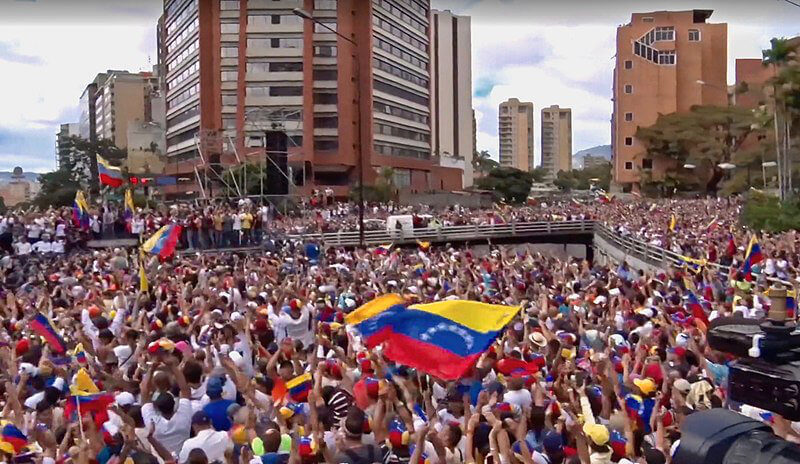Venezuela: The Future As We See It
June 7, 2019 | Expert Insights

Background
Venezuela was once so abundant in petroleum revenues that former President Chavez’s socialist government spent huge amounts on social programs, even providing free heating oil for the impoverished. Possessing the world’s largest crude oil reserves, the country had huge prospects for the future. Following the death of President Chavez, things took a turn for the worse. Starting in 2014, Venezuela’s gross domestic product plummeted even more than that of the USA during the Great Depression. As a result, a vast portion of its 32 million population were unable to afford food, with hospitals starved of basic soaps and antibiotics.
Analysis
The economic turmoil had what can be perceived as a domino effect, sending the Venezuelan political system into a downward spiral. At the heart of it all was Chavez’s successor, President Nicolás Maduro. His 2018 re-election was tainted by accusations of irregularities and voter intimidation, which led to widespread street protests and even an attempted military coup earlier this year.
Although the Bolivarian Revolution under Hugo Chavez did move Venezuela forward in many areas, it did not reduce its dependence on oil revenues. This dependence, the decline of oil prices along with massive social expenditure, and a combination of economic mismanagement and corruption left the country in its current destitute state.
The ongoing crisis has been further deepened by US sanctions against the oil industry in Venezuela. Following this, further sanctions were imposed on the Venezuelan gold mining industry and then on its Central Bank. This had the effect of cutting off the financial institution’s access to American currency and limiting its ability to carry out international transactions, in turn putting even more pressure on the Maduro regime.
Assessment
Our assessment is that the mounting domestic and international pressure may ultimately prove too much for Maduro, forcing him to step aside. Despite this, we feel that his political ideology and catastrophic economic policies will continue. This is because his party’s emphasis on spending large amounts of state revenue on funding social programs such as free healthcare and affordable food unsurprisingly remains popular.
It is our belief that Venezuela’s future will depend on what proportion of the armed forces will continue supporting Maduro on his road to a Castro-styled dictatorship. Nevertheless, domestic pressures will tighten as the economy continues to deteriorate. Along with this, we expect tougher foreign economic sanctions on the Maduro regime as he continues his controversial new term in office. At the moment, the future looks increasingly bleak. The IMF and other such organisations have pointed to an inflation rate of more than 10 million percent by the end of 2019, a deeper collapse of the oil industry, and the departure of a further 2 million Venezuelans.








Comments